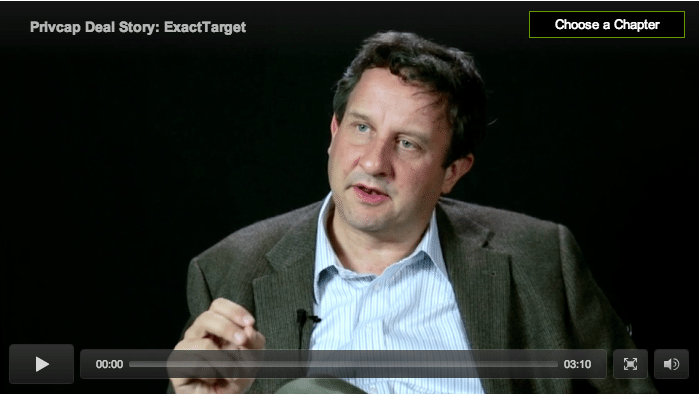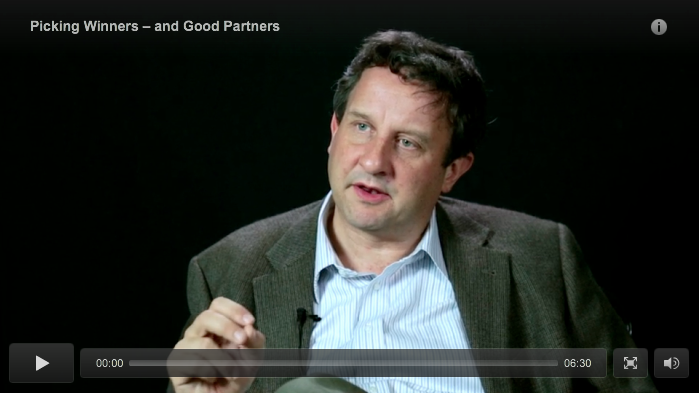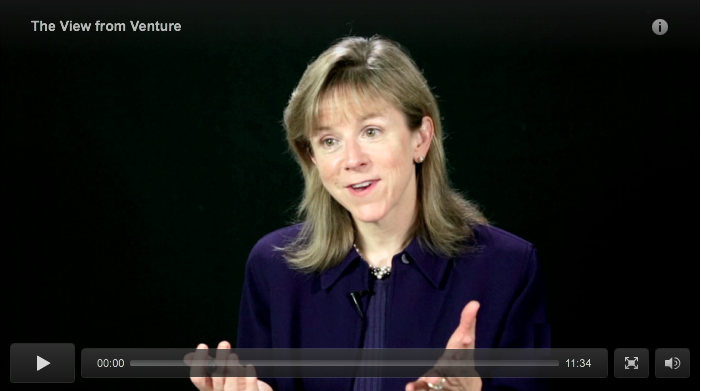Deal Story: Box
Rory O’Driscoll of Scale Venture Partners speaks with Privcap about cloud-based content management service Box.
Transcript Download Transcript
Rory O’Driscoll, Scale Venture Partners: An interesting kind of deal that we, company that we invest in two, two and a half years ago, that kind of epitomizes that is a company called Box Inc, which is now a pretty successful and widely known company in Silicon Valley. We invest, we first met the company about two and a half, three years ago.
And stepping back to the, first of all, the megatrends. We had identified that this idea of cloud storage, which is the idea that your files and storage would move from being with your computer on premise to being in the cloud out there on the internet, and you would effectively store, quote, your stuff in the cloud. We felt that that was a big trend.
We did a lot of work around three or four years ago, looking at about 10 different companies. 10 different products, I mean. Some of them from big companies like Microsoft, some of them from start ups like Box and Dropbox, and other companies, looking at the products and trying to figure out which kind of products would really hit the market sweet spot.
And we came up with a thesis on that, part of which was that for companies, what they would be looking to do is both sync their files in the cloud, and share their files in the cloud. Effectively share information as a company with your other employees, or with your customers. And that was an interesting market for us. So that was kind of the big picture trend. And then back to the name in traction.
We met this company, Box. It’s a great founder’s story. It’s founded by four guys who were friends in high school. They dropped out of college to start this company. They actually funded it, the first $25,000 they funded was from poker winnings from the current CFO, who clearly has a certain amount of financial acumen. I asked him once, was he a great poker player?
He said no, I’m not a great poker player, he said. But on those internet spaces, you can find people that are worse poker players than you. And Dillon took $25,000 off those people and started a company. And they kind of booted up this company initially. They had taken some early venture money, and initially had brought a consumer product to the marketplace.
And they discovered what we also felt to be true, was that the real sweet spot for this was selling to businesses, and that’s where they should take the company. So we met them first in about May of the year where we ultimately invested. And initially, I was actually busy with something else. We took one meeting, and I kind of let it slide, foolish me. And I’m on the end of the year.
One of the things I do at the end of every year as I sit back and I say, what’s the stupidest thing I did all year? What’s the stupidest deal that I didn’t do, where I go my gut tells me there’s something there. And at the end of the year, I said, you know, that Box company, they were young, but they were smart. We should put some money in those guys, and passing on them was a mistake.
So I rang the CEO, Aaron Levie, and frankly just called on him and badgered him to take a meeting. We took a meeting, we started the financing process. We ultimately went around, at a time when it still wasn’t obvious, back to this idea. There was some clear near in end traction.
If you looked through the overall results, even though the overall company wasn’t going that quickly, the new product, the business product had really started to accelerate. So I looked at that traction, and I said this has the two things we look for. It has big long term trends that’s giving it uplift, and has great near end traction.
We led the round of the company, and since then, it’s been one of those great timing deals. It’s that very good friend who’s actually the early stage investor said, we’ve been in this deal two years longer than you were. And we had dark days. We were trying to figure out a consumer product, and ultimately transitioned to enterprise. Since we’ve invested, it’s been nothing but up and to the right.
The company has raised– our focus in these investments is find the company that can scale, and then scale it very aggressively. So if you have a winner, you’ve got to like, back that winner with every dime you have, and attract more capital, and grow as fast as you can. Because these markets, it’s not like 20 or 30 years ago. They don’t wait four or five years for you to bootstrap your way to success.
You’ve got to grab the moment, because within two or three years, if you haven’t, someone else will. So since we invested, the metrics continue to improve and get better. And we’ve worked with the company, really focused on growing sales and marketing, and the distribution. And then frankly, raising significant amounts of additional capital.
Pretty attractive prices to further invest in sales and marketing. We’re now 10, 15, times larger than we were when we invested only two and a half years ago. We’re growing like a weed, and the company, to all intents and purposes, should be one of the big successes of the next two or three years. That’s kind of, I won’t say a typical story.
That’s a successful story that combines the attributes of what we’re looking for. You start with, in terms of what you look for when you invest, it’s the big picture trends and near end traction.
And in terms of what we do once we invest, it’s all about if you have a winner, you’ve got to ride it hard. Because I always say, I joke my CEOs. My winners don’t just have to pay for themselves, they got to pay for all these other mistakes I’ve made. So they’ve got to be big.



